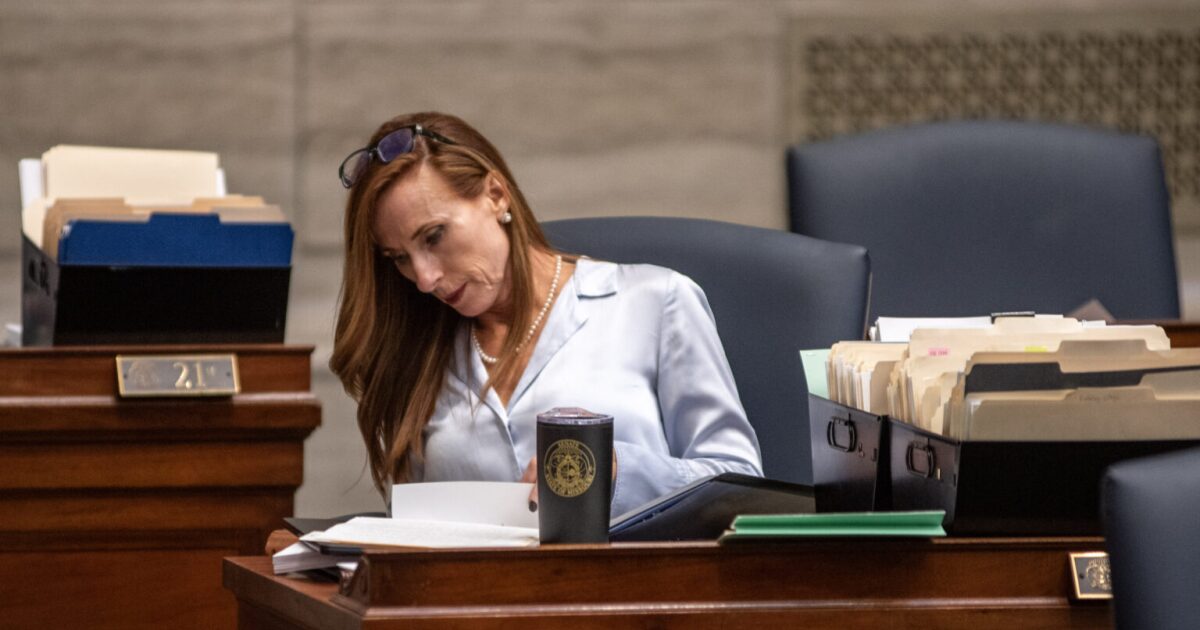Politics
Thousands of Illinois kids could lose after-school programs

SPRINGFIELD, Ill. – Advocates for community-based after-school programs say as many as 40,000 youths statewide could lose access to tutoring services, recreation and other extracurricular activities this summer unless Illinois lawmakers approve an infusion of funds to keep them going.“The time is now for legislators to act to save after-school (programs),” Susan Stanton, executive director of Afterschool for Children and Teens, or ACT Now, said at a Statehouse rally Tuesday. “We literally only have weeks left before programs have to shut their doors. Staff will be laid off and families will be in crisis.”ACT Now is a coalition of groups such as local YMCA chapters, Boys & Girls Club, and other community-based organizations that provide academic enrichment activities and other services during non-school hours for children and teens, particularly those attending high-minority, low-performing schools.The programs that are at risk receive federal funding through the U.S. Department of Education’s Nita M. Lowey 21st Century Community Learning Centers program.That money flows through the Illinois State Board of Education, which awards competitive grants to local programs. Those grants are made in three-year or five-year cycles. At the end of that cycle, the grants can either be renewed or the organization can reapply through a new competitive grant process.The problem facing many programs whose grant cycles are expiring is that in 2023, ISBE miscalculated how much money was available and made commitments to award more grants than the state could fund. As a result, many programs whose grant cycles are expiring cannot get them renewed because there is not enough funding available. Advocates are seeking $50 million in state funding to make up for the anticipated shortfall.Stanton said programs serving about 6,000 students were forced to close at the end of the previous fiscal year, and without an injection of state funds, another 40,000 students will lose access to services after June 30 this year.State Sen. Ram Villivalam, D-Chicago, has proposed legislation that would commit $50 million a year in state funds for the 21st Century Community Learning Centers.“It’s not enough for us to say we support quality, safe and vibrant learning environments for our youth. We have to provide funding for that to happen,” Villivalam said. “I believe … that investing in childhood education is an investment in our future communities, and not something we should take lightly.”Gov. J.B. Pritzker’s budget proposal calls for about $234 million for after-school programs, most of which would come from federal money. But Stanton said that is a different program that sends funds for after-school programs directly to school districts, not to the community-based organizations that receive 21st Century Community Learning Center funding.Capitol News Illinois is a nonprofit, nonpartisan news service covering state government. It is distributed to hundreds of newspapers, radio and TV stations statewide. It is funded primarily by the Illinois Press Foundation and the Robert R. McCormick Foundation, along with major contributions from the Illinois Broadcasters Foundation and Southern Illinois Editorial Association.
Politics
Illinois OK’s hundreds of bills, including biometric data privacy law changes

SPRINGFIELD, Ill. — Lawmakers passed more than 200 bills last week ahead of their scheduled May 24 adjournment.Many of the measures will soon head to Gov. J.B. Pritzker, including a bill that changes how damages accrue under Illinois’ first-in-the-nation biometric data privacy law.The Illinois House on Thursday approved Senate Bill 2979 with several Republicans joining supermajority Democrats in its passage. The Senate last month also OK’d the measure on a bipartisan vote.The measure is a response to an Illinois Supreme Court ruling last year that “respectfully suggest(ed)” lawmakers clarify the state’s Biometric Information Privacy Act. That ruling found fast food chain White Castle violated BIPA each time its employees used their fingerprints in the course of performing their jobs, as the company never obtained permission under the law.In that case, White Castle estimated it would be on the hook for up to $17 billion in penalties, as the law provides for $1,000 in damages for each “negligent” violation or $5,000 for each “reckless” or “intentional” violation.However, White Castle last month settled the case for $9.4 million.“That’s million with an ‘M,’” House sponsor Rep. Ann Williams, D-Chicago, said during House floor debate on SB 2979 Thursday, adding that the White Castle case represented a “sky is falling” scenario that didn’t end up coming true.The legislation would change BIPA’s violation accrual so that each initial collection of a fingerprint or other biometric data would amount to one violation, rather than a violation occurring for each individual scan. Employees might scan their fingerprints dozens of times per shift if they’re unlocking doors or cabinets with those scans.Illinois is the only state that grants residents the right to sue over businesses’ improper collection and mishandling of biometric data – whether they are an employee or a customer. A business is in violation of BIPA if it doesn’t have a storage policy in place, doesn’t properly protect the data, or if it does not get consent from customers or employees for the data being collected.Under SB 2979, businesses could get that consent via an electronic signature, which the bill defines as an “electronic sound, symbol, or process.”Business groups have been clamoring for changes to BIPA in recent years as upwards of 2,000 lawsuits have been filed under the law since roughly 2018, resulting in a few high-profile settlements – including a $650 million class-action payout from Facebook in 2020. The social media giant paid more than 1 million Illinoisans roughly $400 each.Some business groups are still opposed to SB 2979 because it wouldn’t be applied retroactively and doesn’t specifically shield data centers from liability for storing biometric information on behalf of companies who may have violated BIPA.Juvenile human trafficking victim recordsLegislation that would allow human trafficking victims to have their juvenile disciplinary records expunged has now passed both chambers of the General Assembly.House Bill 5465 would make it easier for former human trafficking victims to have those records sealed or expunged for offenses they were involved in while they were being trafficked. The bill is an expansion of a law passed last year that allows adults to have their criminal records pertaining to being trafficked sealed or expunged.The bill is part of a package of human trafficking-focused legislation House Republicans are pushing this year. House Bill 5467, which would remove the statute of limitations for a victim to press charges from being trafficked as a minor, is the only other bill to pass the House and is waiting to be assigned to a committee in the Senate.Foster care regulationsThe House passed two bills amending foster care policies this week.House Bill 4781, known as the Kinship in Demand (KIND) Act, would allow the Department of Children and Family Services to use a “kin-first approach” to foster placement by considering placing children with relatives before other foster or guardian options.Sponsor Rep. Marcus Evans, D-Chicago, said the bill would provide permanence to children, reduce instances of family separation and “make that disruptive process less traumatic.”The bill unanimously passed the House Wednesday and is waiting to be assigned to a committee in the Senate.Senate Bill 2824 passed the House unanimously this week after also clearing the Senate unanimously. The measure would allow foster children to attend school in their former district and not be charged with nonresident tuition if they were moved out of the district by DCFS as part of a safety plan.Rep. C.D. Davidsmeyer, R-Jacksonville, said the aim of the bill is to allow DCFS to decide what is best for the child and to not force guardians to pay tuition to school districts for children to “stay in that stable environment.”Homeowner landscaping rightsHouse Bill 5296, dubbed the Homeowners’ Native Landscaping Act, would prohibit homeowners associations from restricting residents from planting native plants on their property.Associations would still be able to mandate that properties be free from weeds, invasive species and trash. The homeowner would also need to keep the plants from growing onto common areas or neighboring properties.Sen. Jil Tracy, R-Quincy, said the bill is “an intrusion on what a homeowner’s association can do.” She said homeowners know what the association’s rules are when they buy the property, and that any regulation would be best left up to local levels of government.Last month’s vote in the House was partisan but two Republicans – Minority Leader John Curran and Sen. Sue Rezin – voted in favor of the bill this week in the Senate. It passed 42-17 and needs only a signature from the governor to become law.Garbage truck litteringGarbage trucks that lose trash because they are not properly covered could soon be fined after a bill unanimously advanced out of both chambers.House Bill 4848 would create a specific violation for law enforcement to cite when garbage or other debris falls from a truck and litters highways. Each infraction would result in a $150 ticket.Sen. Donald DeWitte, R-St. Charles, said the legislation is an attempt to eliminate unsightly waste.“You don’t have to drive very far to see the fences along the farm fields, the trees, all decorated with various pieces of plastic bags and garbage that might have flown off trucks,” DeWitte said.Mindful classroomsA measure allowing educators to provide students with time for mindful stretching and movement during the school day cleared both chambers as well.Nothing prevents schools from implementing these practices now, but Senate Bill 2872 codifies that educators may provide students with at least 20 minutes of relaxation activities, like yoga and meditation, each week. It would also allow them to partner with an outside institution to provide the activities.During House debate, supporters of the bill said practicing soothing techniques, like breathing exercises and stretching, is essential for helping students manage their mental health – especially as students deal with leftover trauma from the COVID-19 pandemic’s interruption of their education.But those opposed expressed concern with potential programming interfering with classroom learning time and religious freedoms.Rep. Blaine Wilhour, R-Beecher City, specifically cited a recent class-action lawsuit filed by former Chicago Public Schools students against the Chicago Board of Education. Students allege the board forced them to participate in a meditation program that students argued was actually a Hindu ritual that violated their religious beliefs.The House sponsor, Rep. Laura Faver Dias, D-Grayslake, reiterated during debate that the bill is not a mandate and parents could air any concerns about specific programs with local school boards.The bill cleared the Senate 36-19 in April and the House 71-40 this week along party lines.Food grantsA pilot program that has given nearly $2 million to local farms would be expanded into a permanent fund under a measure that received unanimous approval in the House.Senate Bill 3077, which also got a unanimous vote in the Senate last month, would create a special fund for the Department of Agriculture to administer the Local Food Infrastructure Grant Program. In its pilot phase, the state awarded $1.8 million to 19 local farms for a variety of projects, like building a meat processing center and a new kitchen.Under the measure, the IDOA would be able to work with a partner nonprofit and grant money from the newly created Local Food Infrastructure Grant Fund to select small farms for things like food processing and cold storage. Grant amounts could range from $1,000 to $75,000 if it’s for an individual project and up to $250,000 if it’s a collaborative project.Capitol News Illinoisis a nonprofit, nonpartisan news service covering state government. It is distributed to hundreds of newspapers, radio and TV stations statewide. It is funded primarily by the Illinois Press Foundation and the Robert R. McCormick Foundation, along with major contributions from the Illinois Broadcasters Foundation and Southern Illinois Editorial Association.
Politics
Missouri keeps child marriage legal as push to ban dies in House

Child marriage will remain legal in Missouri for at least another year after Republican House leaders said they don’t have enough time to pass it.
Under current Missouri law, anyone under 16 is prohibited from getting married. But 16 and 17 year olds can get married with parental consent to anyone under 21.
Under legislation that cleared the Senate with virtually no opposition earlier this year, marriage would be banned for anyone under 18. “It was very surprising that the House has not allowed it to come to the body,” said Republican state Sen. Holly Thompson Rehder of Scott City, who sponsored the bill along with Sen. Lauren Arthur, a Democrat of Kansas City.
“Banning child marriage should not be controversial. When I filed this bill, I had no idea it would be controversial,” Rehder added.
The bill was stalled by a group of Republican critics in a House committee, who said it would constitute government overreach and infringe on parental rights. It finally passed out of committee this week after several of those critics were not present at the vote.
But House leadership told reporters Friday morning it was too late to place the bill on the House calendar for debate. Session ends at 6 p.m.
“There’s some interest there, unfortunately the rules preclude us from doing that today,” said House Majority Leader Jon Patterson, a Lee’s Summit Republican.
Arthur said the failure is “shameful.”
“When I talk to people back home, they’re surprised to learn that minors can get married in the first place,” Arthur said. “And these are the kinds of headlines that my friends who are apolitical or live in different parts of the country send me and say, ‘What is happening in Missouri?’
“It makes us look bad,” she said, “but more importantly, we’re not doing enough to protect young girls who are forced into marriages and their lives are worse in every way as a result.”
Twelve other states have in recent years banned child marriage.
Rehder said she was told only around 20 out of 163 House members were opposed. She also said the House could have voted to suspend its rules to allow the bill to be debated and passed before adjournment, but suggested that House Speaker Dean Plocher refused to let the bill move forward to avoid embarrassing Republicans who are opposed to banning child marriage.
“We have the votes,” Rehder said, but it didn’t come up “because the speaker didn’t want to put his members in a bad situation.”
“…Because you shouldn’t be against banning child marriage.”
Rehder said she’s hopeful the bill will succeed next year, in large part due to the “public pressure” of state and national media.
“You cannot sign a legal binding contract in Missouri until you’re 18. But we’re allowing a parent to sign a child into a lifetime commitment. It’s ridiculous.”
Rehder attributed some of the opposition to generational differences.
“People who have been against it — the men who have been against it — who talk to me about it have said, ‘Oh, my grandmother got married at 15.’ Well, yes I did too, mine was 40 years ago,” Rehder said.
“And it didn’t work out because I was operating on not an adult mindset.”
Fraidy Reiss, an activist who founded the nonprofit against forced marriage Unchained at Last was active in testifying in support of the bill in Missouri and has worked nationally to pass similar legislation. Upon hearing the news, Reiss said: “How can legislators live with themselves?”
She added that “dozens of teens will be subjected to a human rights abuse and legally trafficked under the guise of marriage in the coming year,” due to the failure to pass the legislation.
“…How will they explain that to their constituents?”
This story was originally published by the Missouri Independent, part of the States Newsroom.
Politics
Missouri Legislature passes fix to property tax freeze law
One year after they passed the original legislation, Missouri legislators have approved a fix to a law allowing property tax freezes for seniors.Members of the House voted 139-0 Friday to pass the bill. Since it has already gone through the Senate, it now goes to Gov. Mike Parson.The current law allows local governments to pass ordinances that would freeze property taxes for seniors. It also would allow voters to approve such an ordinance.St. Charles and St. Louis counties, as well as the City of St. Louis, have already passed their own ordinances on the issue.The way the law is structured now, only seniors who receive Social Security would be eligible for a property tax freeze. That requirement has left out seniors who are on pensions like police officers and firefighters.Sen. Tony Luetkemeyer, R-Parkville, sponsored both the original bill and the changes this session.“Rather than tying eligibility of the property tax freeze to Social Security eligibility, we instead tied it just to age,” Luetkemeyer said.Rep. Ben Keathley, R-Chesterfield, said the legislature did the first part of the job last year.“Now it’s time to make sure that this language clarifies and we can properly expand this to make sure all our seniors can benefit,” Keathley said.The freeze would still only be applicable in municipalities that have approved an ordinance.One provision that some Democrats wanted to add this session was a means test, under which seniors with higher incomes would not qualify for the freeze.That language was not added to the final bill.
-

 Entertainment1 year ago
Entertainment1 year agoSt.Louis Man Sounds Just Like Whitley Hewsten, Plans on Performing At The Shayfitz Arena.
-

 Business1 year ago
Business1 year agoWe Live Here Auténtico! | The Hispanic Chamber | Community and Connection Central
-
Board Bills1 year ago
2022-2023 Board Bill 189 — Public Works and Improvement Program at the Airport
-

 Local News1 year ago
Local News1 year agoVIDEO: St. Louis Visitor Has Meltdown on TikTok Over Gunshots
-

 News1 year ago
News1 year agoTed Lasso-inspired pop-up bar now open in St. Louis
-

 Board Bills1 year ago
Board Bills1 year ago2022-2023 Board Bill 165 — Jefferson Arms Community Improvement District
-
Board Bills1 year ago
2022-2023 Board Bill 183 — Amending Ordinance Number 62885 known as the Capital Improvements Sales Tax
-

 News10 months ago
News10 months agoGas tanker crashes into St. Louis Metro transit center





